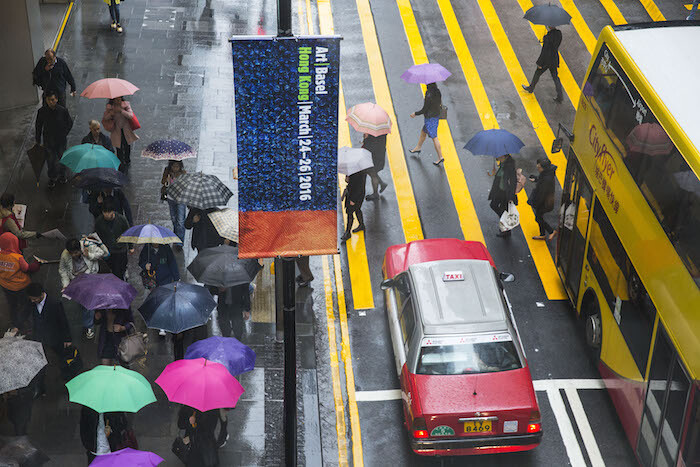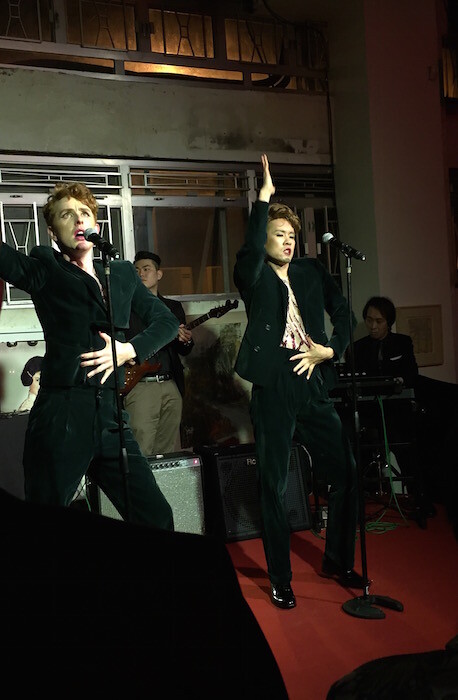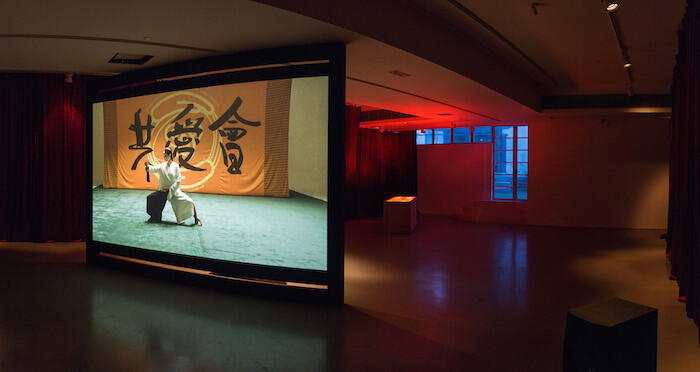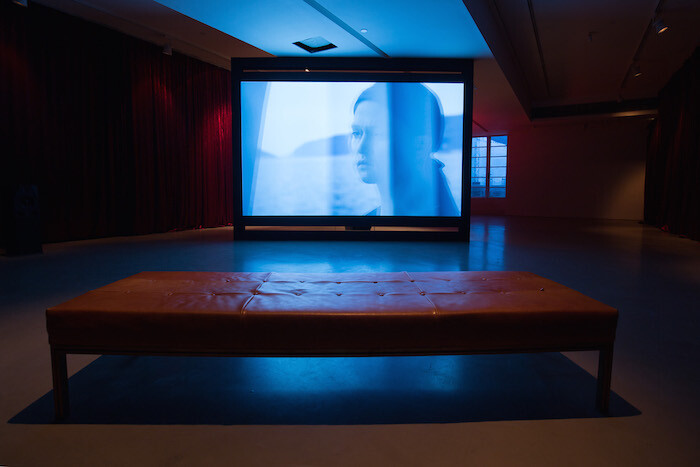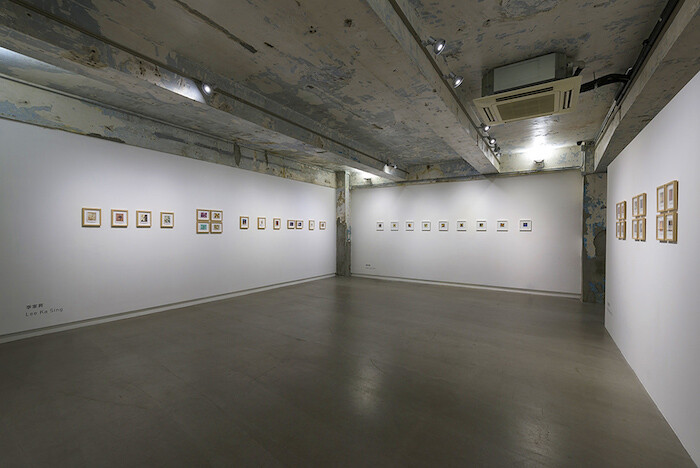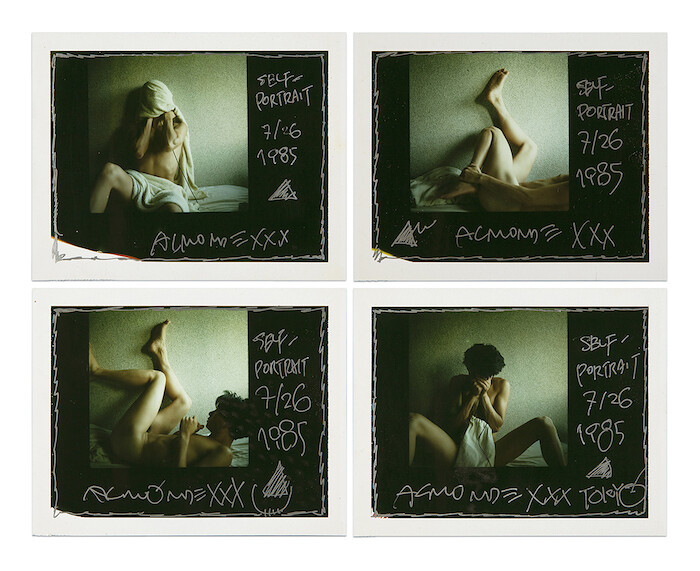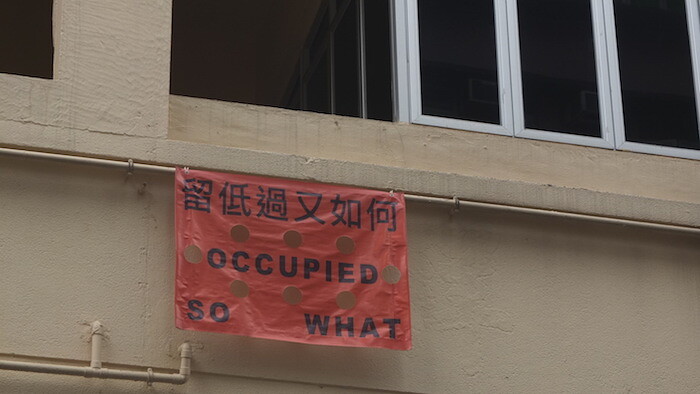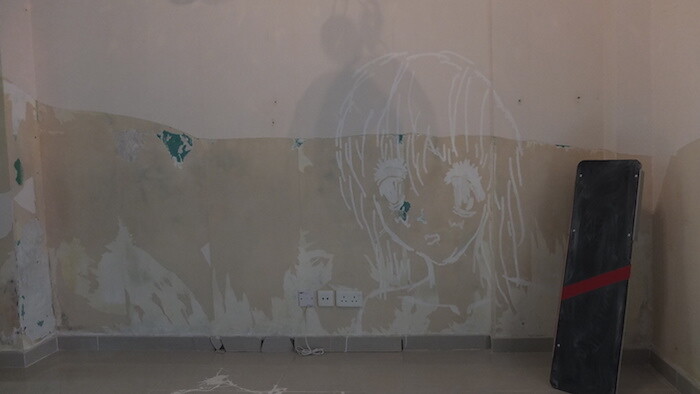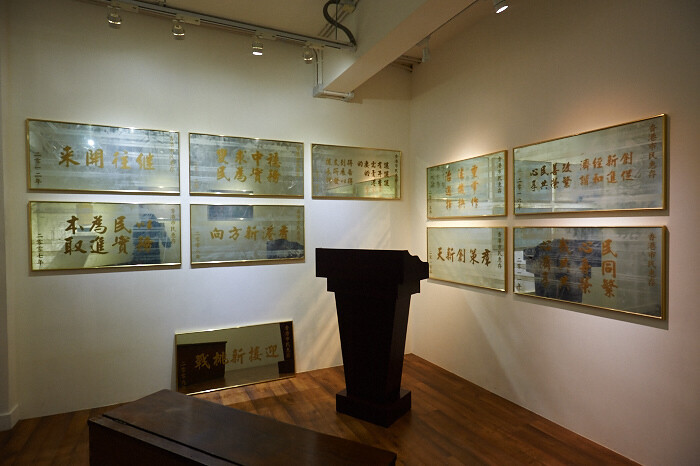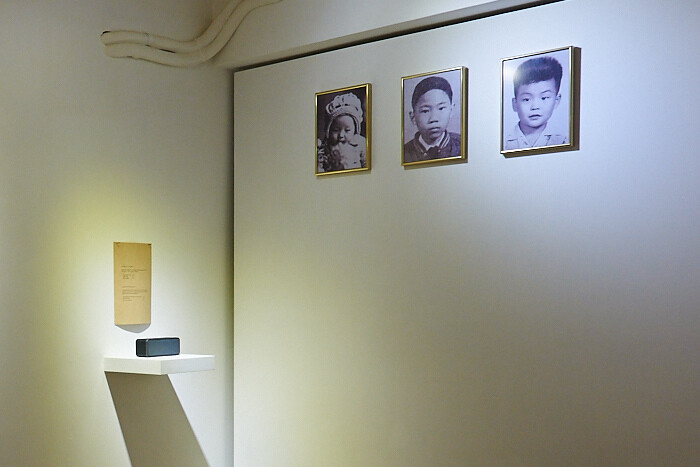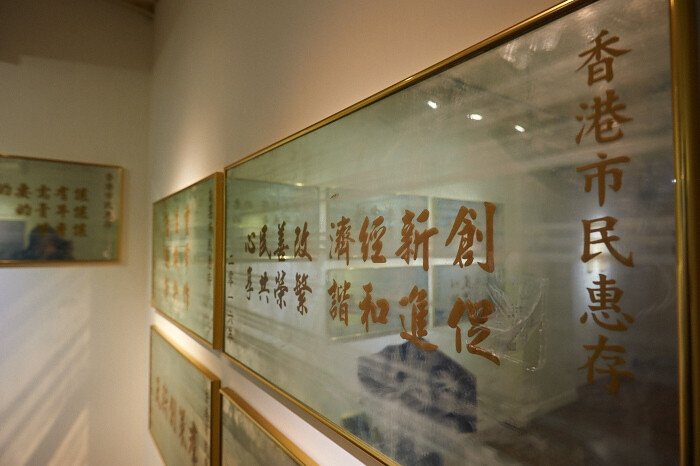Despite this year’s Art Basel Hong Kong taking place over the coldest and wettest Easter experienced in Hong Kong since 1978, the buffeting winds and rain did little to deter the audience from exploring beyond the confines of the Convention Center. Rather, the weather provided a common topic of commiseration between people with umbrellas lost, broken, and unlawfully gained.
In these exchanges often lay the contrasting perspectives of a city held in a delicate balance between the celebration of possibilities and entrepreneurship, the oft-perpetuated stereotype of being exotically between the East and West, and the anxious foreshadowing of an impending loss of governmental and personal autonomy in light of an encroaching mainland China. This heady mix of apprehension and celebration became apparent in the different energies and temporalities channeled into events and exhibitions outside of the fair—a mixture of elation, of adulation, and of consideration.
One of these events was Alexander Geist and Ming Wong’s performance for the album launch of That Girl (2016), a commission by UBS, which the duo presented twice in one night—first at a private party hosted by UBS at Ping Pong, and secondly at a public “Emergency Party” hosted by Flash Art, ArtReview Asia, and LEAP. Geist sang songs off That Girl, while Wong was dressed in an identical outfit—a corduroy suit matched with a flesh-toned, sequined top—lip-syncing as Geist’s Chinese double. With lyrics written by JJ Bibby, That Girl is a pointed reference to white female pop stars like Adele and Lana Del Rey, whose singing repertoire is often confined within the genre of sappy breakup songs. The Ping Pong iteration of the event also screened a music video for That Girl, which was recorded inside the same bar.
Another notable new commission produced in conjunction with Art Basel Hong Kong is Wu Tsang’s Duilian (2016), which premiered at Spring Workshop, a privately funded contemporary art platform. The term duilian can refer to either a form of couplet poetry or a form of sword fighting in contemporary Chinese martial arts; both definitions carry dueling aspects. Duilian, as a multilingual film, unfolds lushly through a speculative, romantic, and time-travelling narrative of Chinese revolutionary poet Qiu Jin (1875–1907) and her friend Wu Zhiying (1868–1934). Against this narrative, Tsang and her collaborator, boychild, introduce slippages in the story’s authenticity and intentional mistranslations, which become apparent in the difference between the spoken word and written subtitles. The latter are based on altered excerpts from historical epistolary exchanges between Qiu and Wu Zhiying, which were written with the help of participants in an earlier public program at Spring Workshop titled “Mutual Love Society”—so named after the group of sworn sisters that Qiu joined after divorcing her husband and leaving her family in 1906. There, participants were invited to mistranslate Qiu and Wu Zhiying’s exchange from classical Chinese literati prose to English. In the film, the English mistranslation is presented next to the accurate Chinese excerpts as subtitles in the film. The English mistranslations were further used for dialogue in the film, with portions translated into Behasa Indonesian, Tagalog, and Iloco by members of the Hong Kong LGBT community whom Tsang met during her residency.
In spite of Tsang’s attempts at self-reflectivity through her relationship with her ethnicity, the lapses in translation, and subjective readings, Duilian suffers from the orientalization and queering of the Other—the speculation that Qiu and Wu Zhiying were a lesbian couple at a time where such terminology did not exist eradicates the nuances held within such relationships that may or may not have been sapphic by nature; a simplification of the figure of Qiu, who was a national feminist hero, contestably co-opted under both the Chinese communist party and the Chinese nationalist party (Kuomingtang) in Taiwan’s narrative; the careless omission of another female personality, Xu Zhihua, a bosom friend and co-conspirator who, like Wu Zhiying, arranged for Qiu’s funeral after Qiu’s execution in 1907 while being persecuted by the imperial Chinese government; and the perpetuation of the romantic idea of a singular new China.
Down the road from Spring Workshop, Blindspot Gallery, a commercial gallery dedicated to photography, organized an exhibition of instant photography from the 1980s through the 2000s by ten Hong Kong artists. “A Permanent Instant” features a range of works from senior artists Choi Yan Chi, Almond Chu, Hon Chi Fun, and others, resulting from experimentations with Polaroid’s SX-70 camera, the first single-lens reflex camera ever manufactured. Set against the backdrop of Hong Kong’s free port, which attracts international photography aficionados to purchase equipment tax-free, “A Permanent Instant” is a reminder of how images were manipulated before digital technologies. In the case of Hon and Choi, the selection of works exhibited are derived from the 1983 exhibition “畫筆之外” [Beyond the Paint Brush], which has been a key part of Hong Kong art history.
Away from the fair and Hong Kong Island, the district of Sham Shui Po in Kowloon has become fertile ground for independent art spaces such as 100 ft. Park and Things that can happen. The arrival of these art spaces to one of Hong Kong’s oldest districts coincided with the government’s efforts at gentrification, including the closing of public gathering points, such as the Yen Chow Street Hawker Bazaar, in hopes of building residential projects to alleviate the the city’s housing woes.
100 ft. Park, whose name refers to the dimensions of its initial location in Sheung Wan, is a non-profit space run by artist South Ho, architect Stanley Siu, and others. Now in its third exhibition space, 100 ft. Park’s programming has provided opportunities for many emerging and mid-career artists to present works that reflect on local, on-the-ground exigencies. On this occasion, “Child,” a solo presentation by Tang Kwok-hin, is a thoughtful reminder of the anxieties that govern Hong Kong’s perceived autonomy from the mainland and the ominous future of its being subsumed under mainland authority, though some may say that this is a present reality.
The installation, which is made up of mirror plaques, a speaker’s podium, fan, audio recordings, and photographs of the artist as a child, communicates a sense of irony or disconnect between citizens and the political elite. Laid out as if in a school room, each mirror plaque bears the title of the annual policy addresses made by the Chief Executive of Hong Kong since 2007. The plaques exude a sense of respectability, which is undermined when one sees that their protective covering has never been removed, giving them a strange dusty texture. Audio recordings simultaneously circulate throughout the room. Installed at the speaker’s podium, one of these recordings consists of a casual conversation between the artist and his nine-year-old cousin about her understanding of Mandarin or colloquial Cantonese terms such as “1997,” “July 1,” “police,” “protestors,” “freedom,” and the notion of England. The innocent rebuttals of the child elucidate fluid nuances of the Cantonese language that are not captured by mainstream media, as well as offer an image of how history will be read through future generations, for whom the language’s definitions and nuances may be seen as resistance against China’s push for the use of Mandarin.
At the point of this writing, the mysterious international disappearances of five staff members from Hong Kong publishing house and bookseller Causeway Bay Books have yet to be resolved. Given that the bookstore circulates mainly publications considered sensitive and banned in mainland China, the disappearance of Lee Bo, Cheung Ji Ping, Lam Wing-kei, and Gui Minhai has been seen as an oblique attempt at halting the publication and distribution of a book critical of China’s leader, Xi Jinping. Lee’s subsequent appearance in Hong Kong and his own account of the happenings leading up to his disappearance have led to questions about possible breaches of Hong Kong’s sovereignty of law, geopolitical boundaries, and the integrity of the “One Country, Two Systems” policy. However, like the rain, this has done little to dampen the atmosphere around Art Basel and some its surrounding events, raises the question of how long the constructed euphoria around the art world in the Hong Kong market can conceal the unevenness of the political ground beneath.
